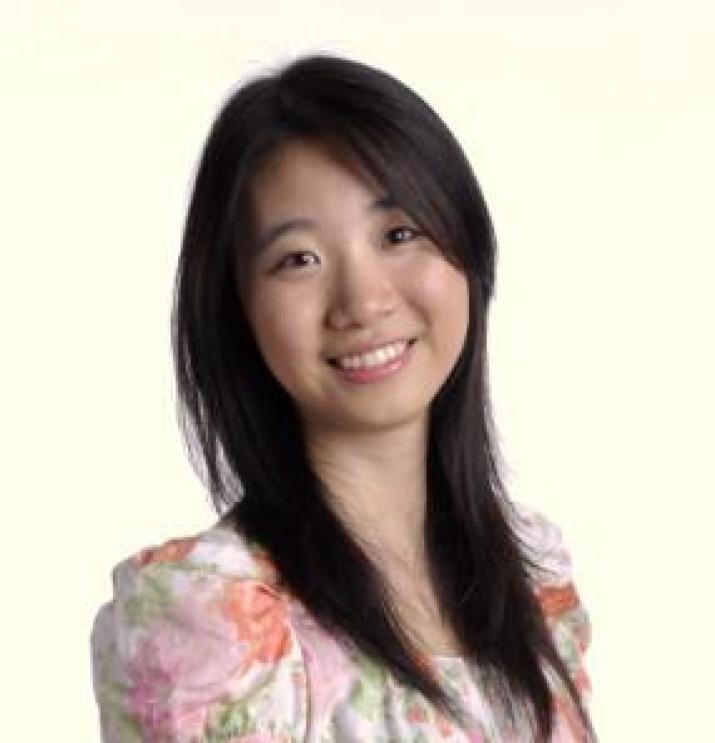By Fan Yang, MSc-GH ‘13
I came to the MSc-GH program at the Duke Global Health Institute with a strong interest in maternal and child health and would soon be embarking on my own research.
As a student, I worked with my faculty mentor Dr. David Walmer to identify potential research opportunities in collaboration with DGHI partner organization Family Health Ministries (FHM). As I reviewed the previous work that MSc-GH alumna Nahida Chakhtoura had done with FHM a year earlier, I narrowed my research interests to the social and behavioral determinants of contraception use.
Why study contraception in Haiti? Easy access but low prevalence of contraception use in Leogane indicates that offering free condoms and contraceptive injections alone are not sufficient for improving reproductive health outcomes. Health issues interwoven with social structures, poverty, cultural context and various individual characteristics can’t be addressed using a standardized solution. I learned these problems must be solved with a deep understanding of the social context and a comprehensive intervention that addresses an individual’s behavior.
I became especially motivated to explore the underlying social and behavioral factors of this issue as my field research project in Haiti. I was curious about the role that those contextual health beliefs play in women’s contraception use. Driven by my curiosity and passion for this topic, I designed a qualitative study involving focus group discussions for women of all ages and in-depth interviews with women of reproductive age.
I remember one particular night in Leogane when a tropical storm swept through our little town, casting an endless downpour onto the roof of the guesthouse where I lived. My interpreter and I were inside transcribing an interview for my research project. Looking through the window at the hazy sugarcane plants being twisted by rounds of wind, I became lost in the memories of households I visited since arriving in Haiti. Leaking and flooding seem to be an inevitable fate of those ti-kay (small houses) in such weather. Lack of transportation during rainy seasons limits access to the already scarce health care services. The unsettling feeling of all the suffering in this country suddenly overwhelmed me and took my breath away. As Bertrand Russell said, “Three passions, simple but overwhelmingly strong, have governed my life: the longing for love, the search for knowledge, and the unbearable pity for the suffering of mankind.” However, the pity is not the end point. I believe that I have a duty to take action and make a difference by fully devoting myself to my passion for global health research.
Every day in the field, I enjoyed walking through the town recruiting participants, interacting with various community members and absorbing valuable information from this vivid “laboratory” all around me. Conducting interviews and managing the logistics of research helped me pay more attention to detail and enhance my skills professionally. Contacting informants and talking to local healthcare providers and international NGO staff also improved my inter-cultural communication skills. Transcribing and hosting daily post-interview meetings with my interpreter gave me a profound understanding of my research topic and elicited new ideas for future studies. Feeling fulfilled as I learned to become an independent researcher, I recall telling myself, “This is exactly the life I desire.
During my fieldwork research, Duke provided me with endless support. Rigorous coursework on epidemiology, demography and qualitative study methods equipped me with professional tools that I’m using today and will continue to use in my career. The funding available to me as a MSc-GH student enabled me to live and work in the field for a period of time to collect primary data. In addition to our main courses, I also had the opportunity to take electives that interested me outside of global health, like a Haitian Creole classes at the Duke Haiti Lab and a decision behavior class at the Fuqua School of Business.
As a graduate of the Duke MSc-GH, I have come to understand the importance of spending a significant portion of my career in the field as a means to better understand the day-to-day challenges imposed by social structures within low- and middle-income countries. Through these experiences and personal interactions, I will be able to identify the critical research questions to expose the social and behavioral mechanisms impeding progress in health care delivery.
Fan is currently pursuing a PhD in public health with a concentration in social and behavioral interventions at Johns Hopkins University.



